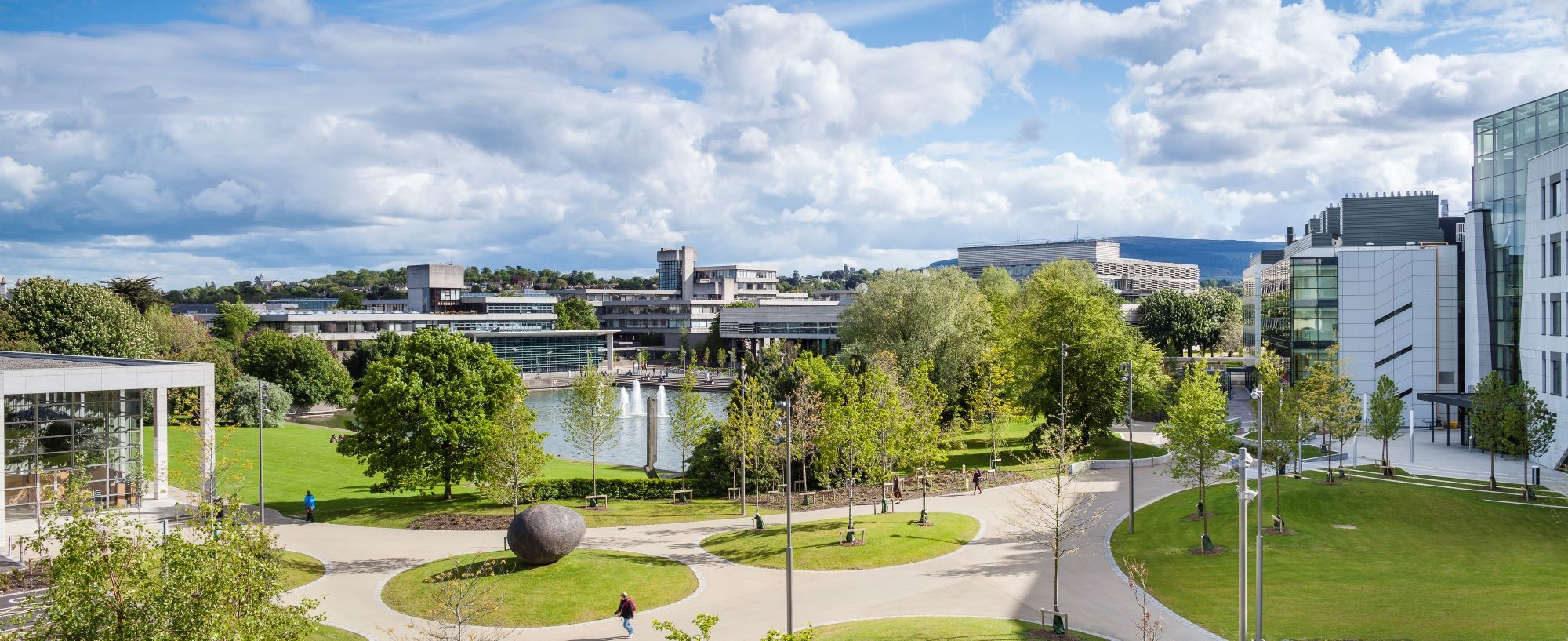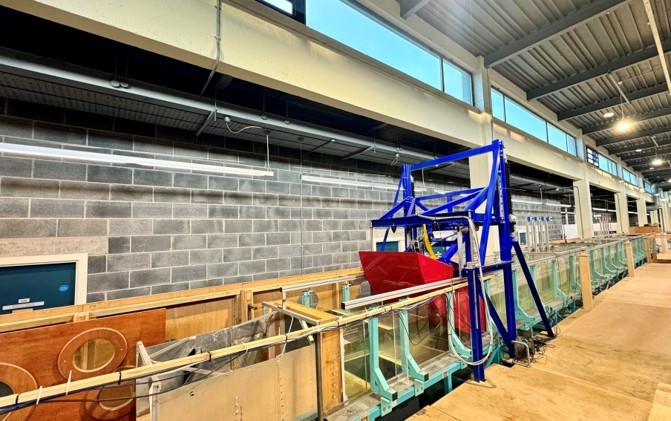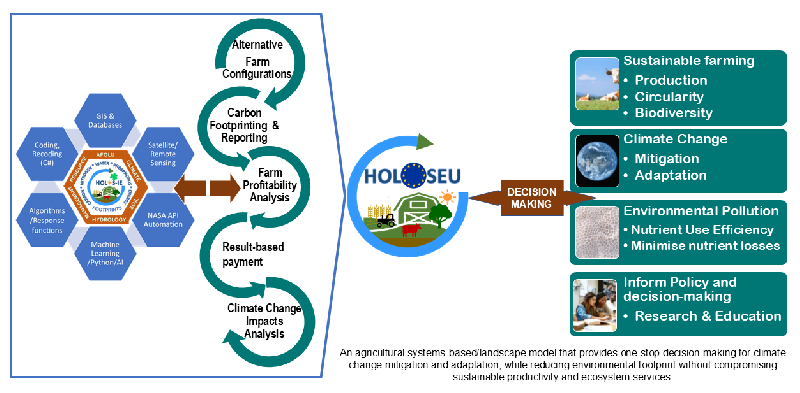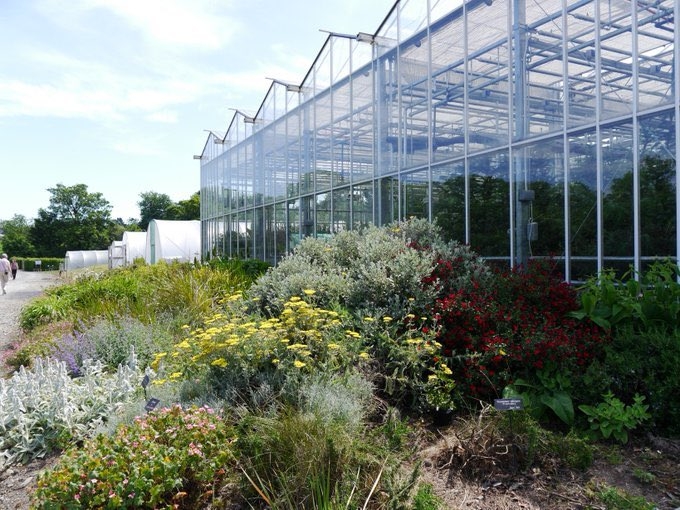
We will host three workshops for delegates in conjunction with Environ this year.
All workshops are now fully booked, if you wish to be added to the waitlist please email administrator@esaiweb.org
10.00 am – 12.30 pm, 10th March 2025
 This two-hour workshop, led by Dr Md Salauddin, will take place in the UCD School of Civil Engineering’s Hydraulics Laboratory. Participants will carry out hands-on wave measurements in the wave flume, exploring various nature-based and eco-engineered solutions under different wave conditions. They will analyse the data in small groups and share their findings in a group discussion.
This two-hour workshop, led by Dr Md Salauddin, will take place in the UCD School of Civil Engineering’s Hydraulics Laboratory. Participants will carry out hands-on wave measurements in the wave flume, exploring various nature-based and eco-engineered solutions under different wave conditions. They will analyse the data in small groups and share their findings in a group discussion.
A volunteer will depart from the O'Brien Centre for Science at 10 am sharp and walk for 20 minutes to the UCD School of Civil Engineering at UCD Newstead.
Background
With climate change causing rising sea levels and more frequent storm surges, coastal defences are under increasing pressure. Traditional sea defences, though crucial, have ecological drawbacks and limited capacity to adapt to extreme weather. This underscores the need for research promoting the adoption of nature-based and eco-engineered solutions.
About Dr Md Salauddin
Dr Salauddin, Assistant Professor at UCD, specialises in nature-based solutions, coastal infrastructure resilience, and wave-structure interactions. His research focuses on extreme coastal hazards and offshore renewable energy. For more information:
UCD School of Civil Engineering
Dooge Centre for Water Resources Research
10.00 am – 12.30 pm, 10th March 2025
Hosted by Dr. Ibrahim Khalil, Coordinator and Project Lead, HOLOSIE and HOLOSEU, School of Agriculture and Food Science, University College Dublin, Ireland and Co-Hosted by HOLOSIE/EU Partners and Team members.
The European Council's ambitious 2050 goal of climate-resilient agriculture with significant greenhouse gas (GHG) reductions while increasing carbon sequestration demands innovative solutions, as current approaches are hindered by data variability, technology adoption, and impact measurement challenges. European agriculture faces significant hurdles, including achieving substantial GHG reductions, building climate resilience, overcoming limitations in current assessment methods, and integrating sustainability goals.
The HOLOSEU project, building on the HOLOS-IE decision-support tool (www.ucd.ie/holos-ie), aims to address these challenges by providing a robust digital platform for holistic scenario modelling across Europe. It incorporates crops, grasses, livestock, agroforestry, and farm infrastructure, along with improved management/technologies. The platform plans to integrate modules like agrobiodiversity, circularity, and nutrient losses to improve ecosystems and achieve sustainable farming. It leverages FAIR data sources, GIS, AI, remote sensing, and dynamic soil and weather mapping to enable accurate land-use planning and user-friendly decision-making. Stakeholders can benefit from HOLOSEU through optimised resource utilisation, improved production economics, realistic mitigation strategies, refined model calibration, and enhanced agricultural resilience.
This workshop will (i) demonstrate the HOLOS-IE v 3.0 leading to HOLOS-EU development and its capabilities, (ii) highlight challenges and opportunities, (iii) showcase functionalities and benefits, (iv) provide hands-on training, (v) invite feedback/suggestions for further improvement, and (vi) promote collaboration for a sustainable future.
Join us to explore how HOLOSEU can empower European agriculture.

2.00 pm –4.00 pm, 10th March 2025
 UCD Rosemount Environmental Research Station is a state-of-the-art plant and environmental research facility under the joint management of the School of Biology and Environmental Science and School of Agriculture and Food Science, University College Dublin, Ireland. The original walled yard of Rosemount House now contains custom laboratory facilities for plant and crop research.
UCD Rosemount Environmental Research Station is a state-of-the-art plant and environmental research facility under the joint management of the School of Biology and Environmental Science and School of Agriculture and Food Science, University College Dublin, Ireland. The original walled yard of Rosemount House now contains custom laboratory facilities for plant and crop research.
 The Environmental Research Facility contains high-spec image analysis PCs with VG StudioMAX software. For destructive sampling of roots, WinRHIZO scanning equipment and software is available. Important facilities for plant and crop research are housed here. include a Cambridge HOK containment (200 m2) & production (Category 2) (355 m2) glasshouse, the Programme for Experimental Atmospheres and Climate facility (PÉAC) and Irish Root and Soil Imaging Facility (IRSI).. The PÉAC facility includes 15 future experimental climate chambers with full monitoring & control of climate, atmospheric composition, light, relative humidity and irrigation.
The Environmental Research Facility contains high-spec image analysis PCs with VG StudioMAX software. For destructive sampling of roots, WinRHIZO scanning equipment and software is available. Important facilities for plant and crop research are housed here. include a Cambridge HOK containment (200 m2) & production (Category 2) (355 m2) glasshouse, the Programme for Experimental Atmospheres and Climate facility (PÉAC) and Irish Root and Soil Imaging Facility (IRSI).. The PÉAC facility includes 15 future experimental climate chambers with full monitoring & control of climate, atmospheric composition, light, relative humidity and irrigation.
In addition to the research facility, the Lamb-Clarke Irish Historical Apple collection is grown here, comprising some seventy five cultivars of culinary and dessert apples of Irish origin. This collection, which has been supported by the Dept of Agriculture and Food, is an important genetic resource for development of new apple cultivars.
A tour of Rosemount is an interesting and educational experience for researchers and students, as well as the general public. This is a unique facility homed on UCD Belfield Campus.
2.00 pm – 4:00 pm, 25th March 2025
 This two-hour workshop offers an interactive demonstration of various sensors designed for multiple environmental applications. Participants will rotate through stands led by Dr. Joseph Sweeney, Dr. Anna Molter, Dr. Sharon O'Rourke, and Dr. Junli Xu, each showcasing unique sensor applications, including air quality monitoring, soil analysis, and plastic sorting.
This two-hour workshop offers an interactive demonstration of various sensors designed for multiple environmental applications. Participants will rotate through stands led by Dr. Joseph Sweeney, Dr. Anna Molter, Dr. Sharon O'Rourke, and Dr. Junli Xu, each showcasing unique sensor applications, including air quality monitoring, soil analysis, and plastic sorting.
At each station, participants will explore practical applications of smart sensor technologies (e.g, near infrared sensor) and learn how these tools can be integrated with IoT systems to enhance sustainable environmental management. This rotating format allows attendees to engage directly with each expert, gaining hands-on insights and tailored explanations on sensor functionality, data capture, and implementation.